|
Books Should Be Free Loyal Books Free Public Domain Audiobooks & eBook Downloads |
|
|
Books Should Be Free Loyal Books Free Public Domain Audiobooks & eBook Downloads |
|
Historical Fiction |
|---|
|
Book type:
Sort by:
View by:
|
By: George Payne Rainsford James (1799-1860) | |
|---|---|
 L'Orme
L'Orme
G.P.R. James was a historian and novelist, who took well-documented historical events and characters and wove stories around minor or imaginary actors in the events. In this work, set in seventeenth century France, we follow the adventures of young Louis, heir to the Count of Bigorre, after an encounter with the vindictive Marquis de Saint Brie forces him into exile. The tale wends its way inexorably towards the Battle of Marfee in the 30 years War and the death of the Count of Soissons in a failed coup against the much hated minister, Cardinal de Richelieu. Young love, a brush with the law, card sharks, a deadly avalanche-- life is definitely interesting for the young adventurer. | |
 Ticonderoga; A Story of Early Frontier Life in the Mohawk Valley
Ticonderoga; A Story of Early Frontier Life in the Mohawk Valley
In the backwoods, lives a man and his two teenage children. He has sought the quiet life on the frontier, although he is a friend to all and never turns away a stranger. One evening, one such stranger arrives at his door, asking for shelter for the night and he is not disappointed. But who is this stranger? He does not give his name or his errand, although he has an aristocratic bearing. As they are about to leave the table, a third man, apparently known to both, arrives and lets himself in to claim hospitality... | |
 Huguenot: A Tale of the French Protestants
Huguenot: A Tale of the French Protestants
The time of French king Louis XIV was a time of religious conflict. His father, Louis XIII had tried to suppress the teachings and followers of Calvin but was thwarted by his ministers. The son took a different path. The king was Catholic, and although he was tolerant of others, some in his government were less so, and persecuted the Protestant Huguenots. This is the story of Albert, Count of Morseiul as he treads the tightrope of being a Huguenot landowner and loyal subject and friend of the king. | |
 Arabella Stuart
Arabella Stuart
Lady Arabella Stuart was an English noblewoman at the beginning of the seventeenth century. At one time considered to be a possible successor to Elizabeth I, the crown eventually went to her cousin, the tyrannical James I. Our story begins in 1603, shortly after his ascension to the throne. Apparently she was happy at the change in fortune, although relations with her kinsman deteriorated after her clandestine marriage, which was incorrectly seen as a power struggle. Even her closest friends could not protect her. In James's usual fashion, this is a colorful fictional account of her life. | |
 Agincourt: A Romance
Agincourt: A Romance
The Battle of Agincourt provided a surprise English victory in the Hundred Years' War. It took place in 1415 and brought a turning point in the war between France and England after failed negotiations. This romance by James begins in the lead-up to the battle, with the mysterious "Hal of Hadnock" shown hospitality by Sir Philip Beauchamp while on an unknown journey. He is befriended by young Richard of Woodville, who has suspicions regarding Hal. Gradually, we learn more of Hal and Richard as we follow their fortunes and the twists and turns surrounding Richard’s love for Mary. | |
By: George Sand (1804-1876) | |
|---|---|
 Consuelo
Consuelo
This roman à clef follows the musical adventures of Consuelo, a gifted singer under the tutelage of the composer Nicola Porpora. After encountering betrayal in her home city of Venice, she goes to stay with a family of nobles in an isolated castle in Bohemia and teach singing to the baroness who lives there. It is there that she meets Count Albert, a troubled young man who experiences regressions to past lives. He is strangely drawn to her, but she, though moved with pity for him, is unsure what to think of him... | |
By: George Washington Cable (1844-1925) | |
|---|---|
 Bonaventure, A Prose Pastoral of Acadian Louisiana
Bonaventure, A Prose Pastoral of Acadian Louisiana
This is a gentle, delightful story of life and love on the bayoux of Acadian Louisiana during the latter half of the 19th century. Bonaventure is a Creole raised among the Acadians. He loves learning, and through his calling as a teacher, and his own unique force of character, comes to have a lasting effect on the people around him. A word of warning: This story has occasional references to Jews and African Americans that the modern mind finds offensive. They are retained here in the interest of preserving the original text. | |
By: Giacomo Casanova (1725-1798) | |
|---|---|
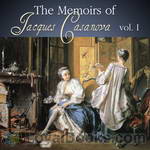 The Memoirs of Jacques Casanova
The Memoirs of Jacques Casanova
This is the first of five volumes. – Giacomo Casanova (1725 in Venice – 1798 in Dux, Bohemia, now Duchcov, Czech Republic) was a famous Venetian adventurer, writer, and womanizer. He used charm, guile, threats, intimidation, and aggression, when necessary, to conquer women, sometimes leaving behind children or debt. In his autobiography Histoire de ma vie (Story of My Life), regarded as one of the most authentic sources of the customs and norms of European social life during the 18th century, he mentions 122 women with whom he had sex... | |
By: Gunnar Gunnarsson (1889-1975) | |
|---|---|
 Sworn Brothers, A Tale of the Early Days of Iceland
Sworn Brothers, A Tale of the Early Days of Iceland
This is the story of the close but sometimes contentious relationship of two young Icelandic kinsman who elect to undergo the solemn ceremony of initiation into blood-brotherhood which includes blood sacrifice to the pagan gods, Odin and Thor. In the era of Viking exploration, these cousins travel in dragon-ships to such destinations as Norway, the Orkneys, England, Ireland, the Isle of Man, etc. The sworn brothers fight for life and death in these treacherous journeys with storm and sea. - Summary by Rita Boutros | |
By: Gustave Flaubert (1821-1880) | |
|---|---|
 Salammbô
Salammbô
After completing the famous Mme Bovary, Flaubert put all his efforts into researching the Punic Wars and completed the lesser known Salammbô. In this volume, Flaubert describes in detail the Mercenary Revolt and the fight of the Mercenaries against the all-powerful Carthage, the theft of the magical Zaimph and the love and hate between the Carthaginian princess Salammbô and the fiercest leader of the Mercenaries, Matho. | |
 Sentimental Education
Sentimental Education
Sentimental Education is a novel by Gustave Flaubert, that is considered one of the most influential novels of the 19th century. The story focuses on the romantic life of a young man at the time of the French Revolution of 1848. - Summary by Wikipedia | |
By: Guy Wetmore Carryl | |
|---|---|
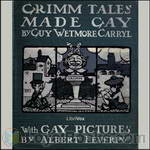 Grimm Tales Made Gay
Grimm Tales Made Gay
A comic rendering in verse of well-loved Fairy Tales of the Brothers Grimm, each ending with a moral and full of puns. The titles of the tales themselves make another verse. | |
By: H. C. Bailey (1878-1961) | |
|---|---|
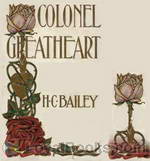 Colonel Greatheart
Colonel Greatheart
This is an unusual story of the English Civil War. There is a good account of the Battle of Newbury, and many historic figures appear: Cromwell (very prominent), Ireton, Prince Rupert, Charles I, Fairfax, and Lambert. The setting for this tale of men and arms is taken from the stirring days of the Bavaliers and the Roundheads, of Puritans and the so-called malignants; but the machines of war are rather in the background, while in the spotlight is a witching woman, a conqueror of hearts and a marker of destinies. The story tells of a woman's ambition that "urges valiant men to perilous deeds". | |
By: H. Rider Haggard | |
|---|---|
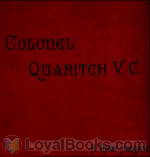 Colonel Quaritch, V.C.: A Tale of Country Life
Colonel Quaritch, V.C.: A Tale of Country Life
This is not your typical H. Rider Haggard adventure book yet it is full of mystery and intrigue including a coerced marriage, bigotry, adultery, murder and a buried treasure! This is the tale of an ancient family’s struggles to survive, one woman’s selflessness and another’s evil schemes; Two Gentlemen, two scoundrels and one very underestimated, loyal servant. Listen as the tale unfolds and guess where the treasure is hidden that can save them all! | |
 Eric Brighteyes
Eric Brighteyes
The Saga of Eric Brighteyes is the title of an epic viking novel by H. Rider Haggard, and concerns the adventures of its eponymous principal character in 10th century Iceland. Eric Thorgrimursson (nicknamed 'Brighteyes' for his most notable trait), strives to win the hand of his beloved, Gudruda the Fair. Her father Asmund, a priest of the old Norse gods, opposes the match, thinking Eric a man without prospects. But deadlier by far are the intrigues of Swanhild, Gudruda's half-sister and a sorceress who desires Eric for herself. She persuades the chieftain Ospakar Blacktooth to woo Gudrida, making the two men enemies. Battles, intrigues, and treachery follow. | |
 Lysbeth, a Tale of the Dutch
Lysbeth, a Tale of the Dutch
This is a great book if you're looking for an adventure filled novel. It takes place during the Spanish Inquisition and describes some of the horrors that happened giving you an idea of what it was really like to live during that time period. Follow Lysbeth, a young Hollander girl, as she struggles through life enduring times of hardship and peace, sorrow and happiness, war and love. (Introduction by Abigail Rasmussen) | |
 The Brethren
The Brethren
Set in the days of the Crusaders, this books tells of a young maiden named Rosamund, and her twin cousins. Godwin is the grey eyed thoughtful man, and Wulf is the blue eyed warrior. They are both knights of England and they are both in love with their fair cousin. But the riddle of the story is which does Rosamund love?The adventure begins when Rosamund is taken from England and carried to the East. The plot thickens as the two young knights follow her in hopes of rescuing her from the Muslim leader, Saladin... | |
 Wisdom's Daughter
Wisdom's Daughter
A strange manuscript in an unknown language is found among the effects of the late Professor Horace Holly. Its translator discovers that while in Central Asia, Holly convinced the immortal Ayesha, also known as She-Who-Must-Be-Obeyed, to write her story - and this is the book they have found. Ayesha, born the daughter of a sheikh in the 4th century BCE, has no interest in the arranged marriage expected of her. She wants power and position of her own. Led by a vision to believe she is the daughter... | |
 Jess
Jess
The setting for this novel is the Boer War in South Africa in 1880. This novel is interesting and exciting on several levels: there are complicated love entanglements, evil Machiavellian treachery, political reflection having to do with the ethics of the colonialism of the day, for one subject for thought, and war in all its lurid and shocking and murderous detail. | |
By: Harold L. Goodwin (1914-1990) | |
|---|---|
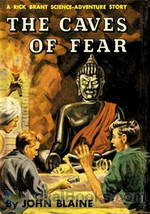 Caves of Fear
Caves of Fear
Entry in the Rick Brant series by Goodwin under the name John Blaine, which began in 1947. 'Rick and Scotty travel to the Himalayas again, this time to stop nuclear materials from falling into the wrong hands.' says Wikipedia. | |
By: Harriet Beecher Stowe (1811-1896) | |
|---|---|
 Uncle Tom's Cabin
Uncle Tom's Cabin
Uncle Tom’s Cabin is one of the most controversial novels of the last century, with it’s sentimental portrayal of the anti-slavery movement in the USA. Written in 1852, the novel instantly rose to fame and split Americans up and down the country. Stowe was a passionate abolitionist and was inspired to write Uncle Tom when she spent time in Cincinnati in the early part of the 18th century. She met many slaves who had escaped from Kentucky and was touched by the friendships she built. It was with this sentiment that the novel was born and the deep empathy Stowe had for slaves is evident throughout... | |
 The Pearl of Orr's Island
The Pearl of Orr's Island
Go on a journey to the coast of Maine and immerse yourself in the picturesque community on Orr’s Island. See the raindrops glistening on the pine needles and hear the waves crashing on the rocks. This is a tale of romance, tragedy, crusty sea captains, an impetuous boy, a loving girl, complete with village gossips and twists in the plot. | |
 Oldtown Folks
Oldtown Folks
1870's rural Massachusetts communities became famous as “Oldtown” in Harriet Beecher Stowe's 7th novel and national bestseller. Based partially on her husband Rev. Calvin Stowe's childhood memories and other old timers' recollections, this story of growing up in rural New England just after the American Revolution is one of the earliest examples of local color writing in New England. Young Horace Holyoke, the novel's narrator, describes life during the early Federalist years, capturing its many rich ideas, customs, and family lore... | |
 Chimney Corner
Chimney Corner
Stowe wrote over 30 books. This one is a fascinating collection of her post Civil War musings on a variety of cultural topics, staged mostly as conversations between Christopher Crowfield , and his wife, their son Ben, daughter Jenny, their friends, and various neighbors who drop in to chat around the fireside. Lively topics include women's suffrage & their education, entertainment, fashion, the economy during reconstruction, youth entertainment, and how society and its institutions should prepare young women for useful, meaningful lives besides getting married or simply depending on other family members to support them while they do little or nothing, or worse, fall into a street life... | |
By: Harrison Ainsworth | |
|---|---|
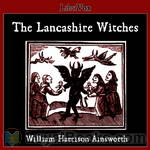 The Lancashire Witches
The Lancashire Witches
The Lancashire Witches is a highly fictionalised account of the activities of the notorious witches Demdike, Chattox and Alice Nutter who, together with others terrorised the district of Lancashire around Pendle Hill and the Forest of Bowland during the early seventeenth century. The witches named in the book were real enough, if not as witches then as people. Ainsworth, in his story brings in the dissolution of Whalley Abbey and the historic families of Assheton, Braddyll and Nowell and takes us through to the final trial and execution at Lancaster Castle in 1612. (Summary by Andy Minter) | |
By: Henry Blake Fuller (1857-1929) | |
|---|---|
 Cliff-Dwellers
Cliff-Dwellers
Between the former site of old Fort Dearborn and the present site of our newest Board of Trade there lies a restricted yet tumultuous territory through which, during the course of the last fifty years, the rushing streams of commerce have worn many a deep and rugged chasm. These great canons—conduits, in fact, for the leaping volume of an ever-increasing prosperity—cross each other with a sort of systematic rectangularity, and in deference to the practical directness of local requirements they are in general called simply—streets... | |
By: Henry Cadwallader Adams (1817-1899) | |
|---|---|
 Perils in the Transvaal and Zululand
Perils in the Transvaal and Zululand
A young man travels to South Africa to find his Mother and sister. He wants to be a clergyman and a farmer when he arrives there. This story includes accounts of the Zulu-Boer wars. - Summary by Ingrid Kennedy | |
By: Henry Fielding (1707-1754) | |
|---|---|
 The History of Tom Jones, A Foundling
The History of Tom Jones, A Foundling
Tom Jones is considered one of the first prose works describable as a novel. The novel is divided into 18 smaller books. Tom Jones is a foundling discovered on the property of a very kind, wealthy landowner, Squire Allworthy. Tom grows into a vigorous and lusty, yet honest and kind-hearted, youth. He develops affection for his neighbor’s daughter, Sophia Western. On one hand, their love reflects the romantic comedy genre popular in 18th-century Britain. However, Tom’s status as a bastard causes Sophia’s father and Allworthy to oppose their love; this criticism of class friction in society acted as a biting social commentary... | |
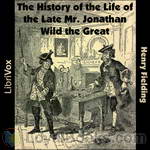 The History of the Life of the Late Mr. Jonathan Wild the Great
The History of the Life of the Late Mr. Jonathan Wild the Great
This novel is sometimes thought of as [Fielding's] first because he almost certainly began composing it before he wrote Shamela and Joseph Andrews. It is a satire of Walpole that draws a parallel between Walpole and Jonathan Wild, the infamous gang leader and highwayman. He implicitly compares the Whig party in Parliament with a gang of thieves being run by Walpole, whose constant desire to be a “Great Man” (a common epithet for Walpole) should culminate only in the antithesis of greatness: being hanged. | |
By: Henry Handel Richardson (1870-1946) | |
|---|---|
 Australia Felix
Australia Felix
The story of Richard Mahony, a doctor trained in Edinburgh who comes to Ballarat in the gold rush of the 1850s. At first he runs a shop but later he marries and returns to medical practice. His story is interwoven with that of his wife’s brothers and sister. Even after his medical practice becomes successful he is still unhappy living in the colony and decides to return home to Britain. Richard is a restless irritable man whose character is said to be based on the author’s own father. This book is the first of the trilogy ‘The Fortunes of Richard Mahony’, but stands well on its own... | |
By: Henry Lawson (1867-1922) | |
|---|---|
 Short Stories in Prose and Verse
Short Stories in Prose and Verse
Short Stories in Prose and Verse” is Henry Lawson’s first published book ; his first published poem appeared in 1887. The volume is a snapshot of his writing style up to the start of his career. His first published poem appeared at age 20, his first published book at age 27. This volume is a good sample of Henry Lawson’s poetry and prose and makes a good stepping-stone towards the enjoyment of his later works. Summary by Chris Greaves | |
By: Henry Peterson (1818-1891) | |
|---|---|
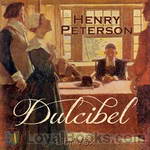 Dulcibel A Tale of Old Salem
Dulcibel A Tale of Old Salem
Dulcibel is a young, pretty and kind-hearted fictional character charged with Witchcraft during the infamous Salem Witch trials. During this time there is a group of "afflicted girls" who accuse Dulcibel and many others of Witchcraft, and during their trials show "undoubtable" proof that these people really are Witches. Will Master Raymond, Dulcibel's lover, be able to to secure Dulcibel's release from jail? Or will Dulcibel's fate be the gallows like so many other accused Witches of her time? | |
By: Henry Rider Haggard (1856-1925) | |
|---|---|
 Pearl Maiden
Pearl Maiden
This is the story of Miriam, an orphan Christian woman living in Rome in the first century. She falls in love with a Roman officer, but knows that her Jewish childhood playmate loves her too and will do anything in order to get her love in return. | |
By: Henryk Sienkiewicz (1846-1916) | |
|---|---|
 Quo Vadis
Quo Vadis
Sienkiewicz’s epic novel of ancient Rome finds the Empire at the height of her power and splendor, but struggling with the madness and cruelty of the Emperor Nero. A new religion is sweeping across the world, causing many Romans to wonder and leading many others to sacrifice everything for it. Yet, even as a great city burns and darkness threatens to overwhelm the age, hope is found in the love of the Roman tribune Marcus Vinicius for the beautiful Christian maiden Lygia, and in his journey toward his life’s true purpose (Introduction by D. Leeson). | |
 With Fire and Sword
With Fire and Sword
In 1647, Poland is a land facing complete destruction with fire and sword. It may come from without, as the Tartar hordes swarm over the steppes, turning cities to ash and the Poles to slaves. It may come from within the country’s bounds, as the traitor Hmyelnitski leads the Cossacks in a devastating revolt. Or it may come simply because the nation’s leaders and nobility have become selfish, lazy, and complacent, and are ill-equipped to face the horrors coming their way. If Poland is to survive, it will depend on the heroes who rise in her time of need... | |
By: Herman Melville (1819-1891) | |
|---|---|
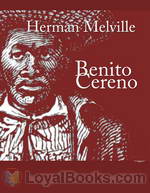 Benito Cereno
Benito Cereno
On an island off the coast of Chile, Captain Amaso Delano, sailing an American sealer, sees the San Dominick, a Spanish slave ship, in obvious distress. Capt. Delano boards the San Dominick, providing needed supplies, and tries to learn from her aloof and disturbed captain, Benito Cereno, the story of how this ship came to be where she is. Dealing with racism, the slave trade, madness, the tension between representation and reality, and featuring at least one unreliable narrator, Melville's novella has both captivated and frustrated critics for decades. | |
By: Homer Greene (1853-1940) | |
|---|---|
 Blind Brother (Version 2 Dramatic Reading)
Blind Brother (Version 2 Dramatic Reading)
A story of repentance and forgiveness set in the times of the the coal mines. Follow a blind boy and his brother determined to get him cured but also determined to live up to a moral code even if that mean years of blindness for Benny. See self sacrifice and family togetherness in this classic tale. - Summary by Luke Castle Cast List Narrator: Sky AsimaruDoctor: lordaJack: Andrew JamesBennie, Judge: larryhayes7Lawyer Pleadwell: Adam BielkaTom: NavinSandy: RockyOctopusDistrict Attorney, Lawyer Summons: Alan MapstoneRandom Testifying Guy, Sheriff: Michael LMicheal Carolann, Irishman: Wayne CookeCourt Clerk, Little Fellow: ambsweet13Mother: LilyLewis G... | |
By: Honoré de Balzac (1799-1850) | |
|---|---|
 Father Goriot
Father Goriot
One of Balzac's most popular works, set around 1815 during the re-ascendancy of the Bourbon kings following the defeat of Napoleon. Said to have been an inspiration to Charles Dickens and Henry James as well as others, the novel seeks to portray the realism of scenes and people. It is also a commentary upon the changing social strata and mores of the day. | |
 Catherine De' Medici
Catherine De' Medici
The Philosophical Studies from The Human Comedy are a series of works that are intended as a reflection on history in part through the use of fiction. 'Catherine de Medici' is one such 'study', and features, alongside detailed history sections, elements of the 'story' are fictionalised. In particular, this happens through dialogue that describes the feelings of the characters and what they are doing, these parts in the manner of a novel. In particular, Catherine de Medici , was depicted by historians as a bad ruler... | |
 Chouans (version 2)
Chouans (version 2)
“The Chouans” was the first novel published under Balzac’s own name . It became the first book in the great work of his lifetime — the novel series titled “The Human Comedy.” Balzac was impressed by the writings of Sir Walter Scott. Scott made Scottish history come alive by creating fictions that used real history as backdrop. Balzac’s novel is set in 1799 — the year that Napoleon became First Consul of France. In the far west of France , anti-revolutionary sentiment still simmered... | |
By: Horatio Alger, Jr. (1832-1899) | |
|---|---|
 Mark the Match Boy or Richard Hunter's Ward
Mark the Match Boy or Richard Hunter's Ward
In this third installment from the “Ragged Dick” series by Horatio Algers, Jr., the reader is reacquainted with some old friends and meets young Mark Manton. Mark is a match boy plagued by bad luck and an even worse guardian. But, with new friends, hard work, and smart choices, Mark may just find his luck taking a turn for the better. summary by tfaulder | |
 Rough and Ready OR Life Among the New York Newsboys
Rough and Ready OR Life Among the New York Newsboys
Join Rough and Ready for his adventure on the streets of New York City. Working as a newsboy, Rough and Ready tries to support himself and his sister on his meager earnings. Unfortunately, their stepfather is seeking to kidnap little Rose, getting an education is hard work, swindlers are trying to trick him out of his money, and thieves are planning nefarious deeds. Luckily for Rough and Ready, he makes some good friends along the way. Summary by Tori Faulder | |
By: Howard Pyle (1853-1911) | |
|---|---|
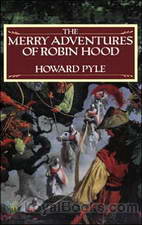 The Merry Adventures of Robin Hood
The Merry Adventures of Robin Hood
A modern day legend, Robin Hood is an archetypal hero of the common people who goes to great lengths to famously take from the rich and give to the poor. Luckily he is not alone in his mission, as his righteous views are shared by his band of Merry Men, a group of yeomen, and together they pursue an end to injustice and oppression. Set in medieval England, the tale begins with the introduction of a young archer, who is provoked into conflict and committing a crime against the formidable Sherriff of Nottingham and is immediately dubbed an outlaw... | |
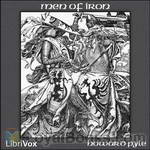 Men of Iron
Men of Iron
Men of Iron by Howard Pyle is historical fiction that transports us back to the 1400’s, a time of knighthood and chivalry. Myles Falworth is eight years old when news comes they must flee their home. His blind father is accused of treason. We see Myles grow up, train as a knight, and with perseverance, clear his father of any wrong-doing and restore their family name. | |
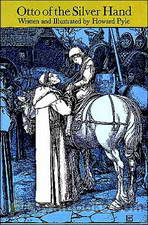 Otto of the Silver Hand
Otto of the Silver Hand
The story of little Otto, a gentle, peace-loving child born into the heart of turmoil and strife in the castle of a feuding robber baron in medieval Germany. (Summary by Arctura) | |
 Howard Pyle's Book of Pirates
Howard Pyle's Book of Pirates
Swashbuckling tales of legendary pirates, buccaneers, and marooners, terrors of the Spanish Main. | |
By: Hugh Walpole (1884-1941) | |
|---|---|
 Cathedral
Cathedral
Sir Hugh Seymour Walpole, CBE (1884 – 1941) was an English novelist. He was the son of an Anglican clergyman, intended for a career in the church but drawn instead to writing. Among those who encouraged him were the authors Henry James and Arnold Bennett. His skill at scene-setting, vivid plots, and high profile as a lecturer brought him a large readership in the United Kingdom and North America. He was a best-selling author in the 1920s and 1930s, but has been largely neglected since his death... | |
 Gods and Mr Perrin
Gods and Mr Perrin
The book is probably better known under the title ‘Mr Perrin and Mr Traill’, later made into a well-known film in 1948. Perrin and Traill are masters at a grim old-fashioned second-rate boarding public school in Cornwall – Perrin has been there many years and the youthful Traill has just arrived. The book concerns the growing antagonism between the two which turns into active dislike following an unfortunate incident and which eventually has devastating consequences. The author vividly captures the dreadful nature of such a cloistered society and the stultifying effect it has on the pupils, their teachers and the other adults in the community. - Summary by Simon Evers | |
 Green Mirror
Green Mirror
Three generations of the Trenchard family, ruled over by the indomitable Mrs Trenchard, live together in comfortable domesticity until Katherine, the favourite daughter, meets and falls in love with Philip, back from some years in Russia, who threatens the whole stability of the family set up by thinking that he can marry her and thus take her away from them all. Philip and Katherine agree reluctantly to postpone their marriage for a full year. During this year, the family begins to splinter as more about Philip and his past becomes known. With considerable humour, the book follows the ups and downs of the family relationships as the year progresses. | |
By: Irving Bacheller (1859-1950) | |
|---|---|
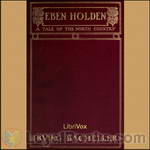 Eben Holden - A Tale of the North Country
Eben Holden - A Tale of the North Country
Eben Holden - A Tale of the North Country. Having lost both parents and his home in northern Vermont, orphan Willie Brower is taken in by Eben Holden, "Uncle Eb" who transports him westward to save him from being sent to an orphanage. Through the Adirondacks and into the St. Lawrence valley they travel. Eben is kind, happy, and loves to tell stories to the youngster, many of which were to shape the life and ideals of Willie during his life.This story follows Willie as a young orphan, later as a journalist, and finally as a soldier who enlists in the army at the outset of the American Civil War... | |
By: Isabella Varley Banks (1821-1897) | |
|---|---|
 Manchester Man
Manchester Man
Jabez Clegg, the Manchester man, floats into this historical novel in 1799, carried downstream by the River Irk in flood. Jabez's rise to commercial success mirrors the rise of the city at the heart of the industrial revolution. Mrs George Linnaeus Banks (nee Isabella Varley) weaves a web of historical fact and fiction in a fast-paced story built around the rivalry between the Jabez and his nemesis Laurence Aspinall, and the fate of Augusta Ashton, who is loved by both but loves only one. An entertaining fictional journey through the early 19th century history of the city of Manchester, the book also has serious points to make about women's choices and domestic violence. | |
By: Israel Zangwill (1864-1926) | |
|---|---|
 Children of the Ghetto
Children of the Ghetto
In this 1892 novel of London's Jewish East End, Israel Zangwill sets the apparently irrational and decidedly indecorous religious practices of transplanted eastern European Jews against the forces of assimilation. Zangwill's knowledge of Yiddishkeit and skill in melodrama created a series of unforgettable vignettes that had a significant effect on the public perception of this much stigmatized immigrant group. Israel Zangwill (1864-1926) was born in London of Russian and Polish parents. He coined the term cultural "melting pot". | |
By: Ivan S. Turgenev (1818-1883) | |
|---|---|
 On the Eve
On the Eve
On the Eve appeared in 1860, two years before Fathers and Sons, Turgenev's most famous novel. It is set in the prior decade (by the end of the novel, the Crimean War (1853-56) has already broken out. It centers on the young Elena Nikolaevna Stakhov, daughter of Nikolai Arteyemvitch and Anna Vassilyevna Stahov. Misunderstood by both her parents (Nikolai Artemyevitch is at least as interested in his German mistress as in members of her family) she is on friendly terms with both the would-be professor Andrei Petrovitch Bersenyev and the rising young sculptor Pavel Yakovitch Shubin, both of whom might be -- or might not be -- in love with her... | |
By: Ivan Turgenev (1818-1883) | |
|---|---|
 Virgin Soil Volume 1
Virgin Soil Volume 1
Turgenev's last and longest novel presents the story of a group of young people in late nineteenth century Russia, who because of disillusionment with the country's entrenched traditional hierarchies and power relationships, seek to foment revolutionary activity especially among the peasant and working classes, pursuing a Populist "cause". The novel throws together some disparate personalities, from aesthetes to aristocracy to works managers to fools, and exposes the real human emotions and tensions generated by the cause. The publication being read is divided into two volumes; this first one includes Chapters 1-20, approximately half the book. Volume 2 is catalogued separately. | |
 Virgin Soil Volume 2
Virgin Soil Volume 2
The second volume of Turgenev's last novel sees social change bubbling up into conflict with the established order and interacting with the fates of the characters, testing their resolve and motivations to the limit. The publication being read is divided into two volumes; the first one includes Chapters 1-20, approximately half the book, and is catalogued separately. This recording is Volume 2, including chapters 21-38. | |
By: J. M. Barrie (1860-1937) | |
|---|---|
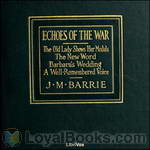 Echoes of the War
Echoes of the War
Short stories with dramatic parts about civilian life in London during the First World War. Some humorous moments. By the author of "Peter Pan". | |
By: J. Thomas Warren | |
|---|---|
 Northern Spy
Northern Spy
The Northern Spy, written in the 1800s, is a lively story about a Union soldier who infiltrates a Confederate battalion in order to aid in the conquering of South Carolina. The novel was very popular, so much so that allegedly Northern Spy apples were named for the hero of the story. - Summary by A. Gramour | |
By: J. Walker McSpadden (1874-1960) | |
|---|---|
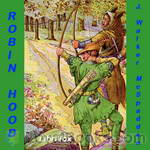 Robin Hood
Robin Hood
Robin Hood is a heroic outlaw in English folklore. A highly skilled archer and swordsman, he is known for "robbing from the rich and giving to the poor", assisted by a group of fellow outlaws known as his "Merry Men". Traditionally Robin Hood and his men are depicted wearing Lincoln green clothes. The origin of the legend is claimed by some to have stemmed from actual outlaws, or from ballads or tales of outlaws. | |
By: Jack London (1876-1916) | |
|---|---|
 When God Laughs, and Other Stories
When God Laughs, and Other Stories
This collection of Jack London's short stories touches on a variety of topics, from his love of boxing, to relationships between criminals, to the trials of life and travel on many frontiers, to an allegory about a king who desired a nose. London is considered a master of the short story, a form much more to his liking and personality than his novels. He was active and quick of mind and the short story suited him well. | |
By: Jacob Abbott (1803-1879) | |
|---|---|
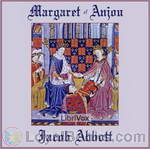 Margaret of Anjou
Margaret of Anjou
Margaret of Anjou, wife of England’s Henry VI, played a key role in launching the storied War of the Roses – the 30-year civil conflict fuelled by the Lancasters and the Yorks, each vying for the British throne in the 15th century. (Summary by Cathy Barratt.) | |